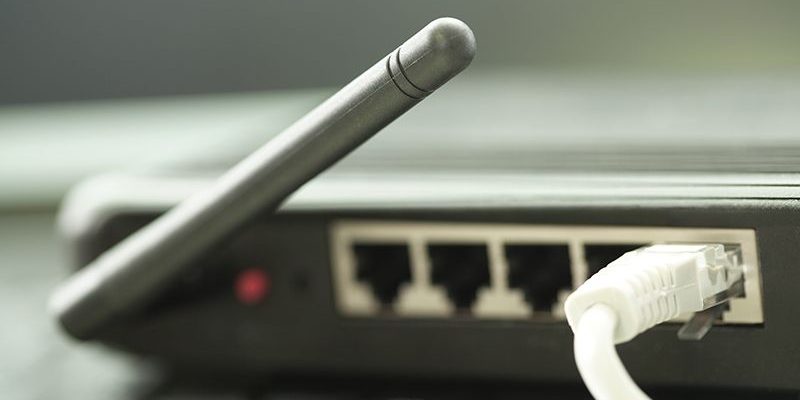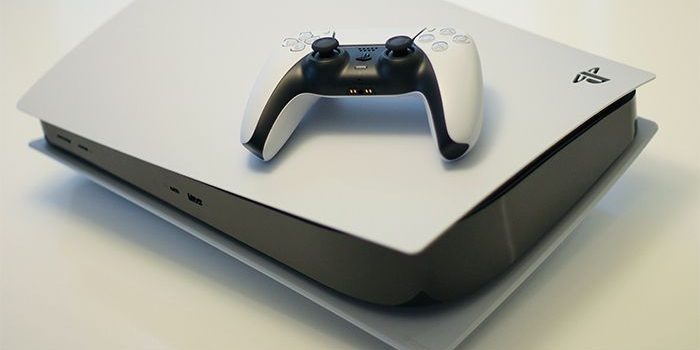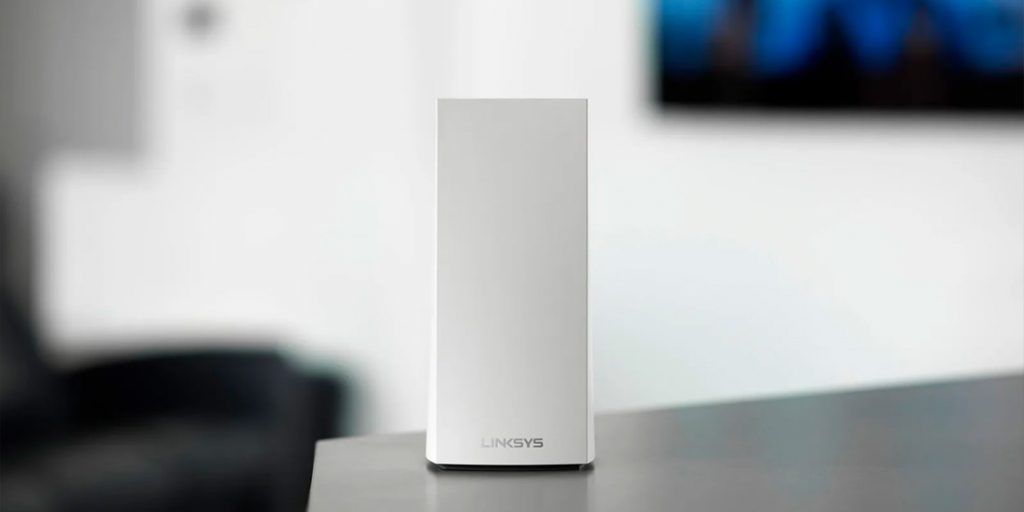Router overheating? Fixes and advice from our technical experts
30th June, 2023 | Home / Blog / Routers / Router overheating? Fixes and advice from our technical expertsReading time: 11 minutes

Your routers are what bring you great fibre broadband. But sometimes, they can overheat.
For this article, we liaised with our technical team to understand the symptoms and causes of overheating routers. If you’re struggling with an overheating router, this article can help you understand the effect it can have on broadband speed, performance, and how to fix it.
Router overheating symptoms: How to tell if my router is overheating?
The most obvious sign is the router being hot to the touch. While it’s normal for a router to be warm, excess heat is a red flag. You might hear a humming noise from your router which is likely to be the cooling fans being pushed to their limits to keep the device cool, by circulating the hot air.
However, not all routers have cooling fans. Our fibre packages come with WiFi 6 mesh router however, these are passively cooled, meaning you won’t be able to hear a cooling fan. A good way to tell if your router might be overheating is by checking how many devices are connected. Too many wireless devices utilising the connection at the same time can lead to overheating.
Other signs include:
- Inconsistent internet connectivity
- Slow internet speed
- A complete loss of internet connection
- Frequent restarts
- System crashes
If you notice your router displaying any of these symptoms, it could be in the early stages of overheating. Next, let’s look at what causes an overheating router.
Why do routers overheat?
Insufficient cooling, being put in confined spaces, excessive dust, and running at high capacity for a long time are some common causes of an overheating router. Old hardware can also cause overheating issues as the router may not work as efficiently meaning they’ll generate heat to try and keep up.
Your router generates heat as it processes data. So without sufficient airflow to disperse that heat, the temperature can rise to harmful levels.
Can you prevent a router from overheating?
Finding the right place for your router can go a long way in preventing overheating.
- Avoid enclosed spaces or areas with restricted airflow.
- Put the router in an open place with cool air.
- Make sure there is ample space on all sides to facilitate air circulation.
- Move the router off the ground or using a cooling stand can also help.
- Try to keep it away from other devices like gaming systems and heat sources to stop it from getting hot.

Can a hot router cause a slow internet connection?
Yes. Overheating isn’t just bad for your router’s shelf life. It can also hamper your internet experience. An overheated router struggles to function optimally, leading to slower broadband speeds, disrupted service, or even complete network shutdowns.
It’s like trying to run a marathon in a heatwave; you won’t run as well because you’re in a hot environment!
So yes, that frustrating buffering on your video calls or during your online gaming sessions could be due to a router’s overheating problem.
How common is it?
Not very! We surveyed to find out how often people touch their broadband router, and feel it physically hot to the touch.
Here are the results:
- 63% voted “Never”
- 13% voted “Once a month”
- 13% voted “Once a week”
- 13% voted “Every day”
What should you do if your router overheats?
If you suspect your router is overheating, don’t panic. There’s often an easy fix to cool it down.
- Switch it off and allow it to cool down.
- Clean any dust or debris that might be clogging the vents and impeding airflow.
- Check for firmware updates, as these can optimize performance and cooling.
- Look into cooling stands – you can get some router cooling pads from Amazon for less than £30.
If all else fails, it may be time to replace the device, especially if it’s old. Remember, routers, like all electronic devices, have a shelf life, and sometimes the most cost-effective solution is a replacement.
Are you facing overheating issues a lot?
If you’ve tried all of the above tips to keep your router cool, it might be time to invest in a high-quality router designed to manage heat more efficiently. Recognising the symptoms, understanding the causes, and knowing how to address it can help keep your internet connection stable and your digital life uninterrupted.
FAQs about overheating routers
Should my router be hot?
Your router shouldn’t be hot to the touch. While they will get warm, the device shouldn’t be hot when touching it.
Is it normal for a router to get hot?
Routers can get warm due to the internal components like the router’s processor working, but they shouldn’t get hot. If it’s too hot to touch, it’s overheating, which can damage the router over time.
What happens if a router overheats?
An overheated router can lead to reduced performance, causing slower internet speeds, intermittent or dropped connections, and in extreme cases, complete network failure. Repeated overheating can also shorten the lifespan of the router.
Can a router catch fire?
While extremely rare, a severely overheated router can potentially catch fire, especially if it’s placed near flammable materials. It’s crucial to ensure your router has proper airflow to prevent overheating.
How long should a router last?
Typically, a good quality router should last between 3-5 years. But as the future of broadband technology and internet speeds continue to evolve, you may want to upgrade your router sooner to keep up with new standards.
What are the signs of a damaged router?
Signs of a damaged router can include frequent network disconnects, slow data transfers, inability to connect to the internet, or a failure to power on the device. Overheating and physical damage are also signs that a router may be damaged.
How do I know if my router is fried?
A “fried” or completely failed router may not power on at all. Even if it does, you may not be able to establish a connection to the internet, or the device may repeatedly crash or reboot.
What are signs that you need a new router?
Frequent internet disconnections, slower than usual speeds, and a limited range are signs that you may need a new router. If you’ve had your router for several years and it’s no longer receiving updates, or if it’s consistently overheating, it might be time to upgrade.
How often do routers go bad?
This varies depending on the quality of the router, but typically, routers start to have issues after 3-5 years of regular use.
Can I hide my router without overheating it?
Yes, you can hide your router if you don’t want it out on show. But be careful about where and how you hide it to avoid causing overheating.
- Choose an open container or shelf that allows airflow.
- Avoid placing it near other heat-generating devices.
- Ensure there is plenty of space around the router to allow for heat dissipation.
- Don’t obstruct the router’s vents.
Is it OK to turn off the router every night?
Yes, it’s fine to turn off your router every night. This won’t harm the router and could potentially increase its lifespan by giving it time to cool down.
Is it OK to leave the WiFi router on all the time?
Yes, it’s usually okay to always leave your WiFi router on. Most routers are designed to run continuously without overheating or experiencing other issues. But turning it off when it’s not in use can extend its lifespan and save energy.
Find out more about what we’re doing to keep costs low in our latest article: cost of living and broadband.
Is it OK to leave the router on 24/7?
Most routers can handle being left on 24/7, but it’s often a good idea to restart them occasionally to clear out temporary data and refresh the connection. If your router is overheating, try turning it off when it’s not in use to allow it to cool down.
Why is my router hot?
Your Wi-Fi router might run hot if:
- It’s working too hard and it’s generating too much heat.
- There’s a lot of internet traffic, so it’s having to work hard to do simple tasks.
- It’s doing a firmware update.
- There are too many devices connected using the internet connection.
- There’s too much dust buildup – it can cause clogged air vents. v
But the above solutions should help to keep your router cool.
That’s all you need to know about an overheating router
You should feel more clued up on how to deal with an overheating router now. At Airband, we offer at least one WiFi 6 mesh router completely free with all of our broadband packages – they can do a great deal to extend your WiFi signal.

You might also be interested in:
Related Articles
Check availability:


